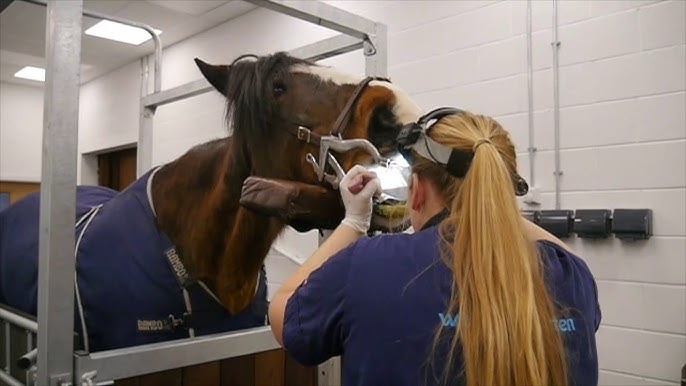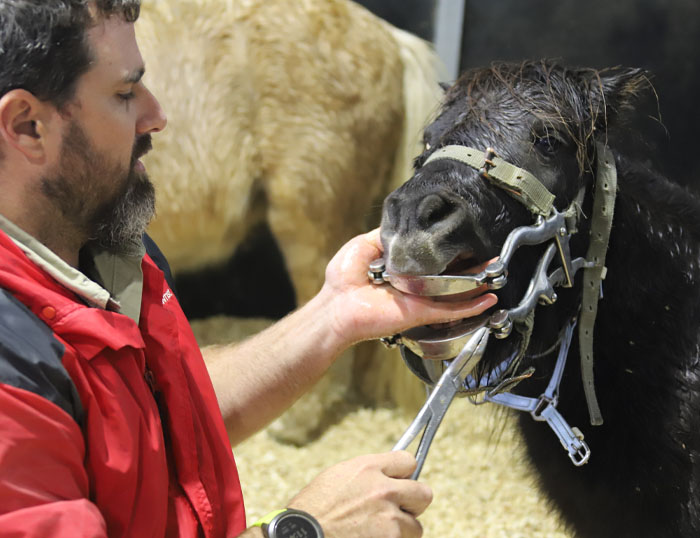When it comes to maintaining the performance and well-being of sport horses, one cannot overlook the importance of dental health in sport horses. Equine athletes require peak physical condition to perform their best, and dental health plays a crucial role. From ensuring proper nutrition to preventing discomfort during competition, equine dental care is vital.

Why is Dental Health Important for Sport Horses?
Dental health in sport horses is critical for several reasons. Firstly, horses use their teeth to grind food, converting it into a digestible form. Issues like misalignment or sharp edges can hinder this process, leading to nutritional deficiencies. Secondly, dental problems can cause significant pain, affecting a horses willingness to work and perform.
Understanding the Equine Dental Structure
Horses have a unique dental structure designed for grinding fibrous plant material. Understanding this structure is essential for effective dental care. Horses have two sets of teeth during their lifetime deciduous (baby) teeth and permanent teeth. As they age, their teeth undergo changes that, if not managed, can lead to problems.
Common Dental Issues in Sport Horses
Several dental issues can affect dental health in sport horses. These include sharp enamel points, hooks, ramps, and wave mouth. Each of these conditions can cause pain and hinder a horse’s ability to chew properly. Regular dental check-ups are essential to identify and address these issues early.
Signs of Dental Problems in Horses
Recognizing signs of dental issues is crucial for horse owners and trainers. Common signs include difficulty eating, weight loss, drooling, and foul breath. Behavioral changes, such as resistance to the bit or head tossing, can also indicate dental discomfort. If you notice these signs, it is essential to consult a veterinarian.
The Role of the Veterinarian in Maintaining Dental Health
Veterinarians play a pivotal role in maintaining dental health in sport horses. They perform dental exams, identify problems, and provide necessary treatments such as floating, which involves filing down sharp points. Vets also offer guidance on dental care routines to prevent future issues.
Regular Dental Exams: How Often?
It is recommended that sport horses undergo dental exams at least once a year. However, some horses may require more frequent check-ups, especially if they have a history of dental problems. Regular exams help catch issues early and ensure that horses remain in top condition.
Preventive Measures for Equine Dental Health
Preventive care is essential for maintaining dental health in sport horses. This includes providing a balanced diet, avoiding hard or overly coarse feeds, and ensuring access to clean water. Additionally, incorporating regular dental checks into your horse care routine can prevent many issues.
Importance of a Balanced Diet
A balanced diet is vital for equine dental health. Feeding horses high-quality forage and avoiding sugary treats can help maintain healthy teeth. Consult with a veterinarian or equine nutritionist to ensure your horses diet meets its nutritional needs.
Understanding Different Dental Treatments
There are various treatments available to address dental issues in sport horses. Floating, extractions, and orthodontic treatments are common procedures performed by equine dentists. It is important to understand these treatments and their benefits.
Impact of Dental Health on Performance
Dental health in sport horses directly impacts their performance. Painful dental conditions can lead to reluctance to train and compete, affecting overall performance. By maintaining good dental health, horses can perform optimally and achieve their best results.
Case Studies: Success Stories
There are numerous case studies highlighting the positive impact of dental care on sport horses. For example, horses with previously diagnosed dental issues showed significant improvements in performance and behavior after receiving appropriate dental treatments.
Consulting with an Equine Dentist
While veterinarians can perform basic dental care, consulting with an equine dentist for specialized issues is advisable. Equine dentists have advanced training in diagnosing and treating complex dental problems, ensuring comprehensive care for your horse.

Long-term Benefits of Good Dental Health
Maintaining dental health in sport horses offers long-term benefits. It reduces the risk of serious health issues, prolongs a horses career, and enhances overall well-being. Investing in dental care is an investment in your horses future success.
Resources for Further Learning
For more information on equine dental care, visit An Introduction to Equine Dental Care. This resource provides comprehensive insights into maintaining healthy teeth in horses.
FAQ
Q: How often should sport horses have dental check-ups?
A: Sport horses should have dental exams at least once a year, though some may require more frequent check-ups.
Q: What signs indicate dental problems in horses?
A: Signs include difficulty eating, weight loss, drooling, foul breath, and behavioral changes.
Q: Why is a balanced diet important for equine dental health?
A: A balanced diet helps maintain healthy teeth by providing necessary nutrients and avoiding damage from hard or sugary feeds.
This article contains affiliate links. We may earn a commission at no extra cost to you.
